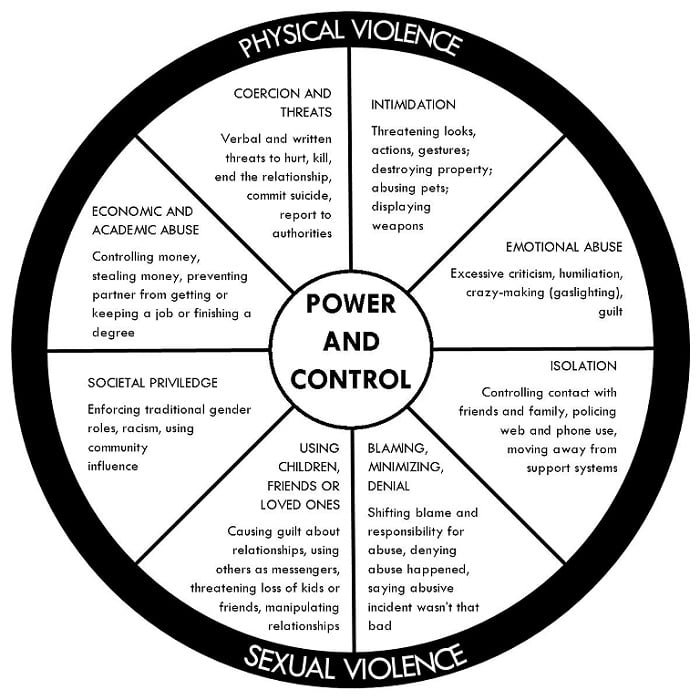Feeling suffocated in your relationship? Recognize the signs of a controlling partner before it’s too late.
From isolating you from loved ones to dictating your every move, controlling behaviors can escalate rapidly.
But why do some partners feel the need to dominate? Stay tuned to uncover the psychology behind relationship with a controlling partner and discover empowering ways to regain autonomy within your relationship.
1. They Make Decisions for You
If your partner consistently takes charge of decision-making in your relationship, this could be a sign of controlling behavior. Healthy relationships thrive on mutual respect for independence boundaries and personal growth. In a balanced partnership, both individuals should have the freedom to express their opinions and make decisions that affect their lives.
Communication skills are essential in any relationship. It’s important to openly discuss your thoughts and feelings with your partner. If your significant other is consistently making decisions for you without considering your input, it may hinder your personal growth and ability to assert your own needs.
Assertiveness training can be beneficial in situations where one partner tends to dominate decision-making. Learning how to assert yourself respectfully can help set clear boundaries and promote a more balanced dynamic in the relationship. Remember, a healthy relationship is built on mutual respect, communication, and the freedom to make decisions that align with both partners’ needs and desires.
2. They’re Overprotective
Being excessively protective of your partner can be a red flag for controlling behavior in a relationship. When your partner displays overprotective tendencies, it may stem from trust issues or an independence struggle. While ensuring care for your loved one’s well-being, crossing personal boundaries in the name of protection can lead to a communication breakdown and feelings of suffocation.
Individuals with controlling tendencies might use overprotectiveness as a form of emotional manipulation, making you feel dependent on them for safety and security. This can result in a loss of autonomy and decision-making power, impacting your ability to assert your own needs and desires within the relationship. To address these behaviors early on to maintain a healthy balance of care and freedom in your partnership.
If you find yourself feeling smothered or restricted by your partner’s overprotective actions, consider discussing your concerns openly and setting clear boundaries to ensure a respectful and trusting dynamic.
3. They Play the Blame Game
Playing the blame game in a relationship can indicate controlling behavior where one partner shifts responsibility onto the other, causing tension and undermining trust. This manipulative behavior often involves emotional manipulation and psychological control, impacting the power dynamics within the relationship. Signs of manipulation through blame-shifting include your partner refusing to take accountability for their actions, constantly making you feel guilty for things that aren’t your fault, and using blame as a tool to maintain dominance over you.
When your partner plays the blame game, it can lead to a toxic cycle of arguments and misunderstandings. You may find yourself questioning your own actions and feelings, constantly trying to avoid being blamed for issues in the relationship. This type of behavior can erode your self-esteem and create an unhealthy dynamic where you feel like you’re walking on eggshells.
4. They Criticize You
Experiencing constant criticism from your partner can be a sign of controlling behavior that undermines your self-esteem and creates a toxic dynamic in the relationship. Criticism, when it becomes a pervasive element in your interactions, can erode the foundation of trust and respect in your relationship, leading to a communication breakdown and a power struggle for dominance.
Here are some key aspects to think about:
- Communication breakdown: Continuous criticism can hinder open and honest communication between you and your partner, making it difficult to express your thoughts and feelings without fear of judgment.
- Emotional manipulation: Criticism can be used as a tool for emotional manipulation, making you feel inadequate and dependent on your partner’s approval for validation.
- Lack of trust: The constant criticism can breed insecurity and diminish the trust between you and your partner, creating a negative cycle of doubt and suspicion that further deepens the rift in the relationship.

5. They Micromanage You
If your partner constantly monitors and controls every aspect of your life, down to the smallest details, it may be a sign that they’re micromanaging you. This behavior can lead to communication struggles as your partner dominates conversations and decisions, leaving you feeling unheard and invalidated.
Independence issues may arise as your partner undermines your ability to make choices or handle tasks on your own, fostering a sense of dependency. Trust concerns often surface when your partner questions your every move, eroding the foundation of trust in the relationship.
Power dynamics become skewed, with your partner holding all the control and you feeling powerless and restricted in your actions. The impact on self-esteem can be significant, as constant scrutiny and nitpicking can make you doubt your abilities and worth.
If you recognize these signs in your relationship, it may be time to address the micromanaging behavior with your partner or seek outside support for a healthier dynamic.
6. They Isolate You From Others
Isolating you from your friends and family, a controlling partner may attempt to limit your social interactions and connections. This behavior can be damaging and is often a sign of deeper issues within the relationship. Here are some key points to take into account:
- Emotional manipulation: Controlling partners may use emotional manipulation to make you feel guilty for spending time with others or make you believe that they’re the only ones who truly care about you.
- Social isolation: By isolating you from friends and family, the controlling partner creates a situation where you depend solely on them for social interaction and support, further strengthening their control over you.
- Power struggle: This behavior is often a manifestation of a power struggle within the relationship, where the controlling partner seeks to assert dominance and limit your independence.
Recognizing these signs is important in addressing trust issues, maintaining personal autonomy, and seeking help if needed to address the underlying problems in the relationship.
7. They Gaslight You
Gaslighting is a manipulative tactic often used by controlling partners to distort your perception of reality and undermine your confidence in your own thoughts and feelings. Signs of gaslighting may include your partner denying things they said or did, making you doubt your memory or perception of events, and even blaming you for things that aren’t your fault. This form of emotional manipulation can have a profound impact on your self-esteem, leaving you feeling confused, anxious, and questioning your own sanity.
If you find yourself in a situation where you’re being gaslighted, it’s crucial to seek help and support. Talking to a trusted friend, family member, or a mental health professional can provide you with perspective and validation. Remember, you deserve to be in a relationship where your feelings and experiences are respected. Trust your instincts and prioritize your mental well-being.
8. They Invade Your Privacy
Invading your privacy is a clear indication of a controlling partner’s behavior, crossing boundaries that are essential for a healthy and respectful relationship. When your partner starts intruding on your personal space and privacy, it can lead to a myriad of issues that erode the foundation of trust and autonomy in the relationship.
Here are three key signs that your partner is invading your privacy:
- Trust Issues: Constantly questioning your whereabouts or activities demonstrates a lack of trust, which is a red flag for controlling behavior.
- Boundaries Crossed: Your partner disregards your need for personal space or time alone, making you feel suffocated and monitored constantly.
- Lack of Autonomy: Being unable to make simple decisions without your partner’s approval strips away your independence and individuality, fostering a sense of control over your life.
Invasive behaviors like these often stem from a place of emotional manipulation and a power struggle within the relationship. It’s important to address these issues early on to maintain a healthy and balanced partnership.

Why Someone Needs to Control
When a partner feels the need to control, it often stems from underlying insecurities and a desire to assert dominance in the relationship. Control dynamics can arise due to a mix of fear and insecurity, leading to power struggles within the partnership. Individuals who exhibit controlling behaviors may do so as a way to manage their own anxieties or uncertainties about the relationship.
This need for control can manifest through emotional manipulation, where the partner uses tactics to influence and regulate the other person’s thoughts and actions. Trust issues can also play a significant role in driving the need for control, as past experiences or personal insecurities may create a sense of uncertainty that the partner tries to mitigate through controlling behaviors.
It’s important to recognize that the need for control often stems from complex emotional factors and may require open communication and professional support to address effectively.
Codependency and Controlling Relationships
In codependent relationships, partners often exhibit controlling behaviors as a means to establish a sense of security and validation within the dynamic. This can lead to a cycle of emotional manipulation, a power struggle for dominance, and a reinforcement of low self-esteem in one or both partners.
Here are some key aspects to take into account in codependent and controlling relationships:
- Emotional manipulation: Codependent relationships often involve one partner using tactics like guilt-tripping, gaslighting, or passive-aggressive behavior to control the other’s actions or emotions.
- Power struggle: In these dynamics, there’s a constant battle for control and dominance, where both partners may feel the need to assert their will over the other to maintain a sense of security.
- Low self-esteem: Individuals in codependent relationships often struggle with self-worth and seek validation from their partner, leading to a cycle of dependency and control.
Recognizing these patterns is essential for addressing enabling behaviors, setting healthy boundaries, and fostering a more balanced and respectful relationship.
How to Set Boundaries With a Controlling Partner
Setting boundaries with a controlling partner is essential for maintaining your autonomy and emotional well-being in the relationship. Communication is key when establishing these boundaries. Clearly express your needs, feelings, and limits to your partner in a respectful and assertive manner. Remember, setting boundaries is about self-care and promoting mutual respect in the relationship. Healthy relationships thrive on open and honest communication.
As you work on setting boundaries, also focus on personal growth and independence. Recognize your worth and value, and don’t be afraid to assert yourself. It’s important to prioritize your well-being and happiness. Seeking support from friends, family, or a counselor can provide you with guidance and encouragement as you navigate this process. Counseling can also offer valuable insights and strategies for dealing with a controlling partner while maintaining your sense of self.

Frequently Asked Questions
How Can I Differentiate Between a Controlling Partner and Someone Who Is Just Looking Out for Me?
When figuring out if your partner is controlling or caring, pay attention to how they respect your boundaries, autonomy, and communication styles. Red flags include manipulation and lack of trust. Trust your instincts.
Can Controlling Behavior Be a Sign of Insecurity in a Partner?
Insecurity can manifest as control in a partner, leading to trust issues and communication barriers. Emotional manipulation may occur, affecting power dynamics. Understanding these complexities can help navigate relationships with empathy and clarity.
Is It Possible for a Controlling Partner to Change Their Behavior With Therapy or Counseling?
Therapy can be effective in helping a controlling partner change their behavior. Counseling can impact relationship dynamics positively by addressing underlying issues. With effort and commitment, behavioral change is possible for a controlling partner.
Are There Any Cultural or Societal Factors That Contribute to Controlling Behavior in Relationships?
In relationships, cultural norms, gender roles, and family dynamics can influence controlling behavior. Societal expectations and power dynamics also play a role. Understanding these factors helps navigate and address controlling behaviors for healthier relationships.
How Can I Support a Friend or Loved One Who Is in a Relationship With a Controlling Partner Without Jeopardizing Their Safety or Well-Being?
To support a friend in a controlling relationship, set supportive boundaries, offer intervention strategies, assist in safety planning, empower with techniques, and communicate openly. Your presence and guidance can help them navigate this challenging situation safely.
Conclusion
If you find yourself in a relationship with a controlling partner, it’s important to recognize the signs and take action. Remember, you deserve to have autonomy and freedom in your relationship.
Just like a flower needs sunlight and water to thrive, you deserve to grow and flourish in a healthy, supportive environment. Don’t be afraid to set boundaries and seek help if needed.
Your well-being should always come first.





